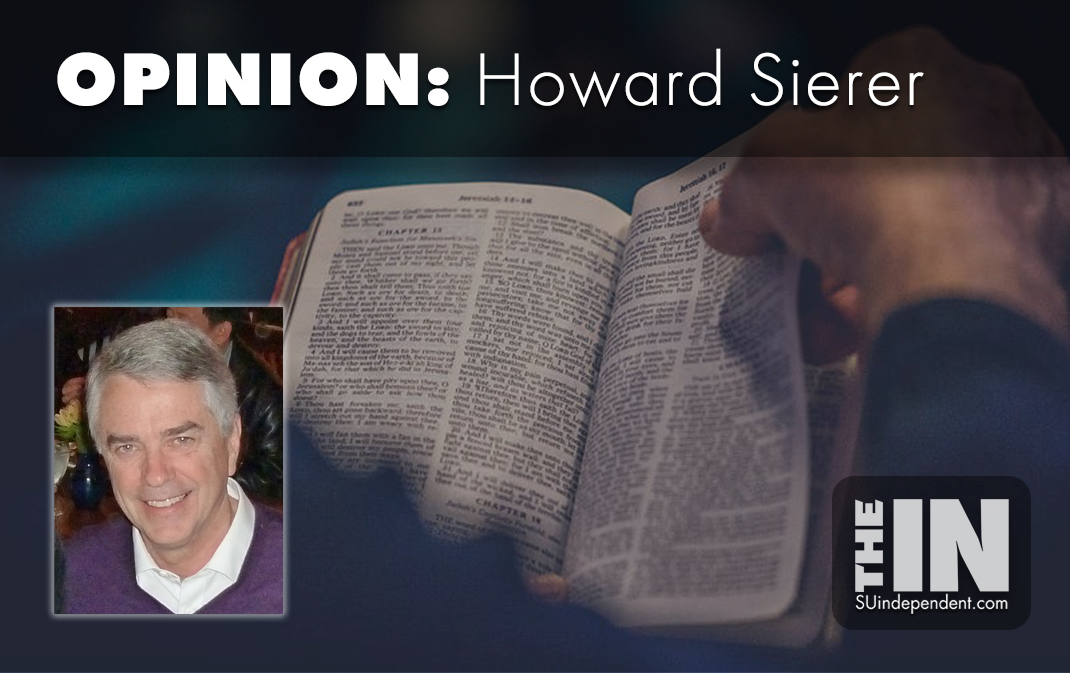
The Liberal Elite, Religion and Social Capital
– By Howard Sierer –
Karl Marx wrote “religion is the opium of the people.” While avoiding allusions to drugs, this country’s liberal elite also have little use for religion, regularly seeking ways to push churches out of the public square and marginalize their role in society.
By diminishing the role of religious institutions, the liberal elite has contributed to the measurable decline in what sociologists call “social capital,” the network of relationships among people who live and work in a particular society, enabling that society to function effectively. Aspects of social capital include a shared sense of identity, a shared understanding of the world around them, shared norms, and shared values of trust, cooperation and reciprocity.
A number of societal institutions contribute to a country’s social capital: government, schools, public infrastructure and economic institutions. It’s also clear that churches and religious institutions rank highly on all aspects of social capital, even when a country has a diverse population and its citizens practice a variety of religions.
As documented by the Social Capital Campaign, “social capital is fraying in the United States.” Its data: thirty-one states have experienced marked decreases in volunteering, 40% of prime-age working adults are neither married nor cohabiting, and 32% of American adults have only two or fewer close friends. Other facts: interpersonal trust has dropped 15-25% since the 1970s, two-thirds of millennials report not feeling like they belong in their communities and only 19% of our citizens trust the government to “do the right thing.”
Add to these facts the dramatic increase in children living in single-parent homes and it’s easy to develop an apocalyptic outlook for our country.
Thankfully, there are flickers of light on the otherwise dark horizon: liberal elites are beginning to awaken to the importance of families and to the importance of religion in public life. Liberal influencers like The New York Times, The Atlantic magazine and NPR have published articles recognizing the importance of what might be called “traditional” values and institutions to the nation’s well-being. As David Leonhardt, a columnist at the New York Times, noted, “I think that my half of the political spectrum — the left half — often dismisses the importance of family structure.”
Likewise, the left’s dismissal of the importance of religion is being seriously reconsidered. Harvard Professor Tyler VanderWeele published new research that shows the remarkable impact religious attendance and participation have on health — both physical and mental — with significant declines associated with a lack of religious participation.
In addition, a major 2022 comprehensive review in the leftwing Journal of the American Medical Association documented 215 studies, each with sample sizes of over 1,000 participants, evaluating the relationship between religion and health. Weekly religious service attendance is associated with lower mortality risk, lower depression, less suicide, better cardiovascular disease survival, better health behaviors, and greater marital stability, happiness, and purpose in life.
The number and quality of studies supporting these conclusions has steadily grown and the evidence base is now very compelling. Religion cannot be neglected as a social determinant of personal and societal health.
Derek Thompson, an agnostic critic of organized religion, recently wrote in The Atlantic: “Maybe religion, for all of its faults, works a bit like a retaining wall to hold back the destabilizing pressure of American hyper-individualism, which threatens to swell and spill over in its absence.” He goes on to note that a falling off in religious participation helps to explain the “historically unprecedented decline” in face-to-face socializing, both for adults and their children.
Utah is one of the most religious states in union and one of the friendliest. “The people are extremely nice. You’ll hear that periodically of folks that go and visit Utah,” says Ben Blau, a professor at Utah State University’s Jon M. Huntsman School of Business. “In fact, sometimes they’re almost too nice – people get a little weirded out.”
All Utah’s churches, including those of the state’s “predominant” religion, deserve a significant portion of the credit. This “religious fabric” of shared values, trust and cooperation contributes to the strong social capital that those of us who live here often take for granted.



